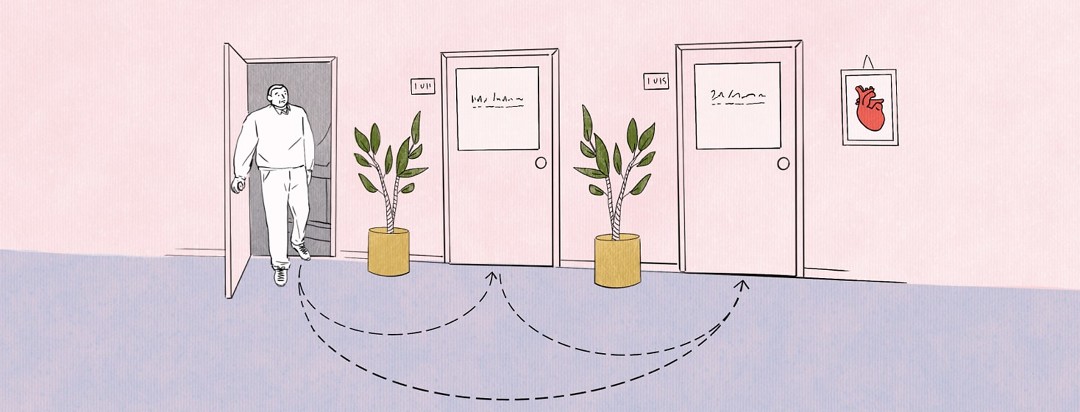Where to Get Care for Your Heart Failure?
I recently learned that the vast majority of heart failure patients are managed by their Primary Care Physician (PCP) as opposed to a Cardiologist or Advanced Heart Failure Doctor. Even though my Congestive Heart Failure is managed by an Advanced Heart Failure team, many people I have met through online patient groups have their heart failure managed by their PCP or General Practitioner. This was news to me, and it got me thinking about why this might be the case.
Supply and demand
First off, there is a very real issue of supply and demand between patient needs and cardiologist or heart failure providers. Per the CDC, the number of Congestive Heart Failure patients in the US is 6.2 million!1 Yes, you read that correctly. Moreover, of this 6.2 million, 10% have advanced heart failure, meaning that the conventional strategies are no longer working. Regarding provider supply, as of 2020, there are 33,055 cardiologists in the US, which includes people like Interventional Cardiologists whose focus is surgical interventions.2
Although I could not find newer 2020 statistics, the American Association of Medical Education (AAMC) reported that as of 2015 there were 14,572 patients per Cardiology provider.3 While the number of cardiologists has risen since then, the number of patients likely has as well which means this is an ongoing, staggering problem. Equally startling, this problem will only worsen as rates of risk factors like obesity, high cholesterol, high blood pressure, and diabetes continue to increase.
Heart failure is not a linear process
So, what’s the issue? On one hand, it’s important to recognize that for many people, their underlying heart failure is well managed by their PCP. I was listening to a town hall the other day wherein Advanced Heart Failure doctors discussed the unmet needs of heart failure patients and this conundrum of patient/provider supply and demand came up. In realizing that not every heart failure patient will be able to be treated by an Advanced Heart Failure provider, there are well-published guidelines for Primary Care Physicians and Cardiologists to use in guideline-directed medical therapy.4 If this is the case for you and you are staying healthy that is great.
Yet many patients do not tolerate medications, have trouble adhering to tough dietary/fluid restrictions (I’m not victim shaming), or just have a complex underlying disease. Moreover, while there has been advancement in therapies, heart failure remains, in the words of one study: “an incurable and progressive condition with an unpredictable clinical trajectory.”5 Said another way, heart failure is not a linear process. Personally, I think my meds or doses have changed 5 times in the past year!
Delay a slide into advanced heart failure
Also, while patients are healthy, they need to be on optimal therapies to prevent or delay a slide to advanced heart failure. Once individuals arrive at this unfortunate destination, as anyone who has received an LVAD or new heart can attest, the options dwindle and outcomes become less ideal. According to the same research cited above, “HF is the primary cause of mortality in more than 55,000 Americans each year, with an estimated 50% of HF patients dying within 5 years of the diagnosis.”5 These are sobering statistics, but true nonetheless.
Advocating for ourselves
My aim is not to induce panic; however, I do think we need to realize the seriousness of this condition and advocate for ourselves when we are not receiving the care that we need or when we feel our health is getting worse. Yes, there is a large supply and demand problem, but this does NOT mean that we should forgo our medical needs if issues arise.
So, what is a person to do? If your symptoms are not under control perhaps it’s time to move up a notch. If you’re seeing a PCP find a Cardiologist, and if you’re seeing a Cardiologist and your cardiac health continues to decline, do not wait to ask for a referral to an Advanced Heart Failure/Heart Transplantation Doctor. And I get it, depending on where you live you might have to travel to a larger academic research institution to access this care and that is not always easy. The bottom line is this, managing heart failure is complex, and not every doctor is the right fit. Do not be afraid to educate yourself and advocate for your needs.

Join the conversation